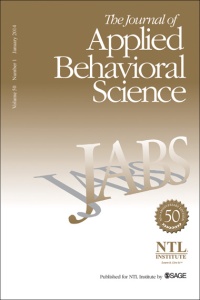Do You Have Research on Coaching?
Many of us have had mentors who helped us move forward in both our careers and day-to-day life. The Journal of Applied Behavioral Science will explore these relationships further in its upcoming Special Issue on Coaching. Please send your abstracts to richard.boyatzis@case.edu no later than July 1, 2014!
Possible topics include:
- What are the various forms of coaching being practiced and how are they similar to and/or different from
 other forms of helping relationships?
other forms of helping relationships? - What are the factors that lead to high quality coaching relationships?
- How does coaching influence individual effectiveness and/or well-being and organizational effectiveness?
- What are the roles of external versus internal coaches in organizations and how do coaches of each type differentially influence individual and organizational effectiveness?
- What factors (e.g., relationship quality, meeting frequency, duration of relationship, etc.) have the greatest impact on coaching effectiveness?
- Does the mode of coaching (i.e., face-to-face, telephone, Skype, etc.) have an impact on the quality of the coaching relationship and/or effectiveness of the coaching?
- What is the role of emotional contagion in the coaching relationship? In what ways does the emotional state of the coach influence the emotional state of the coachee and vice versa?
Click here for more information.
Want to be the first to know about opportunities like this and more from Journal of Applied Behavioral Science? Click here to sign up for e-alerts!




























































































